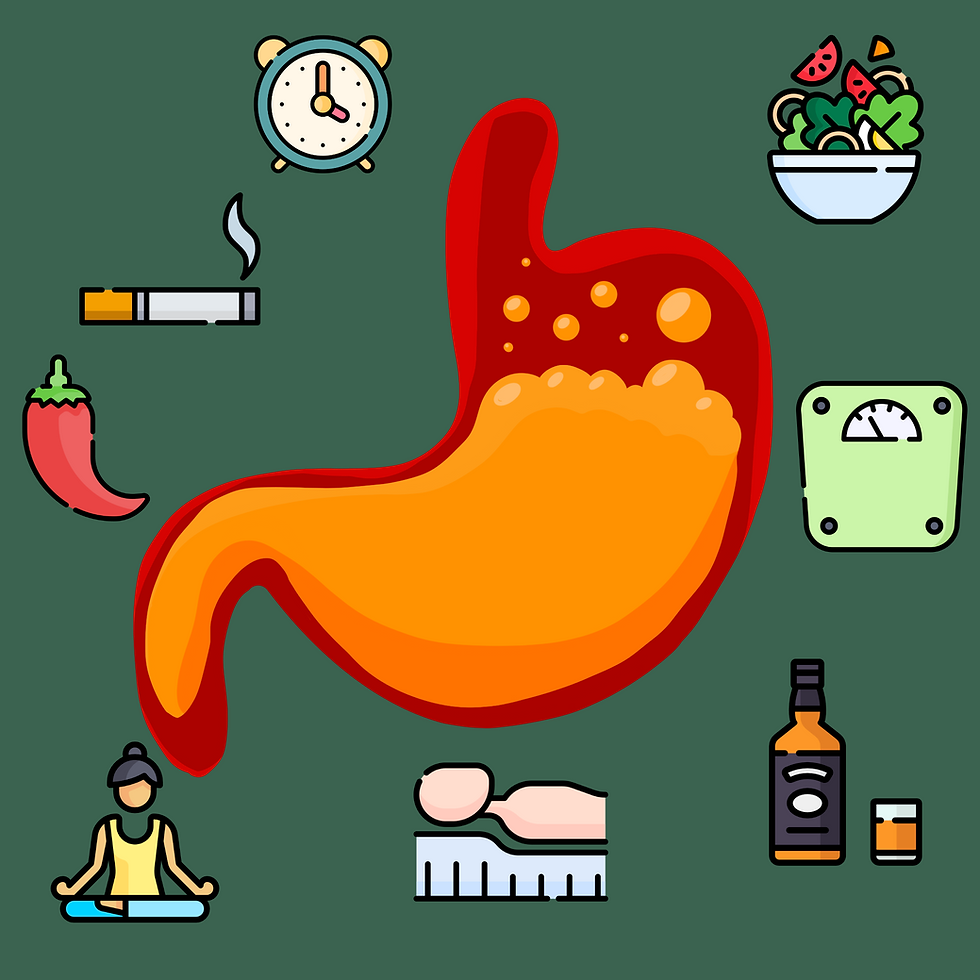Effective Treatment of GERD: Simple Precautions for A Symptom-free Life
- Dr. Preethi MS., DNB., (ENT)

- Feb 7, 2023
- 2 min read
Gastroesophageal Reflux Disease (GERD) is a common digestive disorder characterized by frequent acid reflux and heartburn. The good news is that many of the symptoms of GERD can be managed through simple lifestyle modifications. In this article, we will discuss the most effective lifestyle changes that can help you effectively treat GERD and improve your quality of life.
Eat Small, Frequent Meals: Eating smaller, more frequent meals can help reduce the amount of acid your stomach produces and prevent acid reflux. It's also important to avoid overeating, as this can put pressure on your stomach and cause acid to leak into your esophagus.
Avoid Trigger Foods: Certain foods and drinks, such as fatty or spicy foods, chocolate, coffee, and alcohol, can trigger GERD symptoms. Keep a food diary to identify your trigger foods and try to limit or avoid them.
Avoid consumption of excessive amounts of coffee/ tea. Limit your intake to two cups of coffee/ tea per day.
Quit Smoking: Smoking can weaken the muscle that keeps stomach acid from flowing back into your esophagus. Quitting smoking is not only beneficial for your overall health, but also for managing GERD symptoms.
Limit alcohol consumption
Maintain a Healthy Weight: Being overweight or obese can increase pressure on your stomach and cause acid reflux. Losing weight, if necessary, can help reduce your symptoms.
Avoid Lying Down Immediately After Eating: Lying down or going to bed immediately after eating can cause acid to flow back into your esophagus. Wait for at least two hours after eating before lying down.
Elevate Your Head While Sleeping: Elevating the head of your bed by about 6 inches can help prevent acid from flowing back into your esophagus while you sleep. You can use blocks or a foam wedge to elevate your bed.
Wear Loose-Fitting Clothing: Tight-fitting clothing, especially around your waist, can put pressure on your stomach and cause acid reflux. Wear loose-fitting clothing to reduce pressure on your stomach.
Reduce Stress: Stress can increase acid production in your stomach and worsen GERD symptoms. Try to reduce stress through exercise, meditation, or other methods that work for you.
GERD can be a frustrating and uncomfortable condition, but many of its symptoms can be managed through simple lifestyle modifications. By eating smaller, frequent meals, avoiding trigger foods, quitting smoking, maintaining a healthy weight, avoiding lying down after eating, elevating your head while sleeping, wearing loose-fitting clothing, and reducing stress, you can significantly reduce your GERD symptoms and improve your quality of life.
Lifestyle changes alone are not sufficient to treat GERD, it's important to consult a doctor for further evaluation and treatment.




Comments